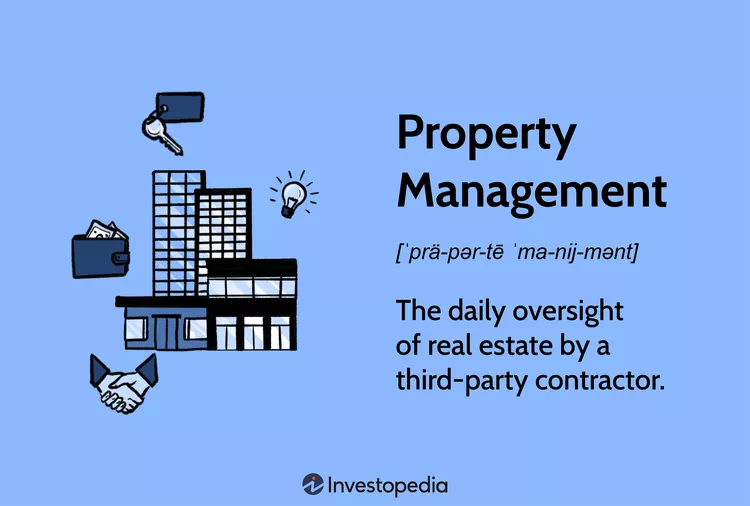Table of Contents
INTRODUCTION: Property Management Exits & Acquisitions
Who Am I & Why Am I Writing About This?

My name is Marshall Hatfield (add me on LinkedIn). I founded ZenOak when I tried to buy my first Property Management Company in 2022.
Since then I’ve been involved in buying & selling multiple PM Companies because I realized one simple fact:
The way people are buying & selling Property Management Companies is fundamentally broken.
Sellers sell for less than their company is worth (because they don’t know how to properly prepare it for sale). On top of that, many often sell at the worst possible timing.
Buyers overshop the same few (listed) deals, which are typically overpriced and/or messy. (A topic for another article.)
Here in “How to Value and Sell a Property Management Company,” I’m going to share my own experiences, plus quotes from many experts who have bought & sold all types of Property Management Companies.
We’re going to cover a few main areas:
#1. This Introduction:
We begin with Industry Background and the Basics of Buying & Selling PM Companies.
#2. Property Management Company Valuations:
What is a Property Management Company worth? And what makes it worth more (or less)?
#3. Preparing a Property Management Business for Sale:
How to build the most valuable & saleable company before actually beginning your exit.
#4. How to Actually Sell a Property Management Business:
Exploring options, providing a rough roadmap, and highlighting potential (expensive) pitfalls.
This is what we do all day, every day. If you are in the busiess, and would like to have a more in-depth discussion about anything you see here:
Please use any link throughout the page to book a free Strategy Session Call w/ one of our M&A Nerds.
Want to Speak to an Expert About Selling (or Buying) Property Management Companies?
There's No Obligation & No Cost. We'd Love to Hear From You!
What Is Property Management? (Quick Definition)
ZenOak readers are probably already familiar with the Property Management Business, but it’s still always worth clearly defining our terms in a complex discussion.
According to Wikipedia:
Property management is the operation, control, maintenance, and oversight of real estate and physical property. This can include residential, commercial, and land real estate. Management indicates the need for real estate to be cared for and monitored, with accountability for and attention to its useful life and condition. This is much akin to the role of management in any business.
Investopedia simplifies it further still:

Their expanded definition goes on to include:
Property management is the daily oversight of residential, commercial, or industrial real estate by a third-party contractor. Generally, property managers take responsibility for day-to-day repairs and ongoing maintenance, security, and upkeep of properties. They usually work for the owners of investment properties such as apartment and condominium complexes, private home communities, shopping centers, and industrial parks.
From my own perspective, I would add:
A Property Manager is a service provider that helps a Real Estate Investor earn a positive ROI on their investment properties by handling the day-to-day operations of those properties in a profitable manner.
A money-losing Property Manager will not stay in business long, as you’ll see by the highly competitive nature of the business outlined below.
A key value provided by the Property Management Industry is maximizing earnings for Real Estate Investors.
Regardless of the type of properties managed, a Property Manager will always be:
- Striking a balance between their Clients (the Real Estate Investors) and their Tenants (those using the Properties),
- With the ultimate goal of pleasing everyone while generating an excellent ROI for the Client.
Where Does Property Management Fit Into the Bigger Picture?
Property Management Companies are on the frontlines of day-to-day rental operations.
From managing Single Family Rental Homes, to complex B2B Commercial Office Leases:
Property Managers exist to help Investors maximize their Return On Investment (ROI) by ensuring their investment properties are operating at their highest & best outputs.
Responsibilities that typically fall to the Property Manager might include things like:
- Getting vacant units fully leased up.
- Setting & collecting rents.
- Hiring & managing maintenance + repair personnel.
- Dealing with tenant complaints & issues.
- Too much more to list!
If you’re currently in the Property Management Business, you already know that your list of responsibilities might seem to be practically never ending.
Keeping properties running profitably is hard work.
It’s also vitally important, because most Real Estate Investors are not prepared (and wouldn’t want) to self-manage.
Economic Stats on the Property Management Industry As a Whole
In the USA, there are about 326,000 individual Property Management Companies.1
Those 326,000+ Companies generate about $82B2 – $99B3 in annual revenue, industry-wide.
Companies range from single employee shops doing <$100k per year in total revenue…
… Up to industry giants like Greystar, generating $2B+ in annual revenue4.
Several trends are shaping the future of the industry:
#1. Technology is driving efficiency and customer service.
Property management software and automation tools are key advancements.
#2. Sustainability and energy efficiency are becoming more important.
These changes are driven by regulatory requirements, increased energy costs, and consumer preferences.
#3. The legal and regulatory landscape is increasingly complex.
This complexity demands specialized expertise and resources. State-by-state regulatory differences continue to increase operational costs for regional & national firms.
#4. General macro-economic trends in Real Estate also impact Property Management.
Remote work and changing space demands are influencing the industry. Some managers are being forced to shift their strategies to adapt to the changing market demands (while others are continuing to have record years).
#5. The industry is still incredibly fragmented.
While more consolidation is continuing, especially for Commercial Property Management at larger Multifamily Management…
… No single Property Manager has gained a significant market share, and competition is fiercer than ever (especially in light of the other above trends).
Two Key Features of the Property Management Business Model
(That Make It So Appealing to Potential Acquirers)
There is a reason you’re starting to see more & more institutional investors dipping a toe into the Property Management acquisition space:
It is a very appealing business to own & operate!
When it comes to precisely what makes a Property Management Company so appealing for potential acquirers, there are two critical factors:
#1. Contract-Based Recurring Revenue
Typically, the majority of a Property Management’s income will come in the form of Management Fees.
These fees are collected, usually, as a percentage of total rental income (e.g. 10% of the gross rent is paid to the Property Manager as a Management Fee).
Better yet: these Management Fees are typically paid for a contracted period of time, usually 1 – 3 years, meaning that one can expect a very predictable income stream for each Management Client the business serves.
This type of revenue is much more valuable to potential acquirers than less consistent, less predictable revenues (e.g. when compared to income sources like one-off service fees, or seasonal business).
#2. Evergreen Revenue Streams
In addition to earning the majority of its revenue via Contract-Based Recurring Revenue…
… The Property Management Business is also one of the least cyclical segments of the entire Real Estate Industry!
While Real Estate Transactions are highly cyclical & vulnerable to macroeconomic market cycles (interest rates, economic growth, migration patterns, etc)…
… At the end of the day, Property Management stays consistent, and if anything, steadily grows, through good times, and bad!
That’s because managing rentals is a big pain, regardless of whether you’re in a hot market or a recession.
Most Real Estate Investors are simply not equipped to self-manage their properties.
This means Property Managers are always in-demand, and placing Property Management as a whole into the running for one of the most “recession proof” business segments out there!
VALUATION: What's a Property Management Company Worth?
Quick Back-of-the-Napkin Valuation Multiples
Coming soon
Positive Factors that Increase a Property Management Company's Valuation
Coming soon
Negative Risk Factors That Make a Property Management Company Worth Less
Coming soon
Exit Valuation vs. Saleability: Understanding the Difference
Coming soon
EXIT STRATEGY: What to Do BEFORE You Sell a Property Management Company
The Most Direct Path to Boosting Your Valuation: REVENUE and PROFIT
Coming soon
3 Key Mistakes That Will Make Your Business Harder to Sell (and How to Fix Them)
Coming soon
Mistake A: Bad Bookkeeping & Accounting
Coming soon
Mistake B: Lack of Documented Systems & Processes
Coming soon
Mistake C: Bad Growth Trajectory & No Growth Plan
Coming soon
FINAL SALE: How to Actually Sell a Property Management Company
What You Should to Gather Before Starting the Process of Selling Your Business
Coming soon
- RubyHome - Property Management Industry Statistics
- Mordor Intelligence - US Property Management Market Size & Share Analysis
- RubyHome - Property Management Industry Statistics
- S&P Global - Greystar Real Estate Partners LLC Outlook Revised To Positive On Stronger Operating Performance; 'BB-' Ratings Affirmed (2022)


